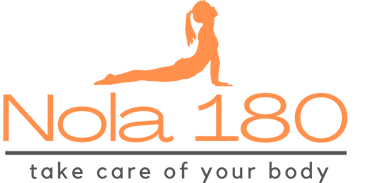It might seem like a simple enough thing, but eating healthy can be difficult when you’re trying to lose weight. There are so many diets out there, each with its own set of “rules” for what is and isn’t allowed. And because we’re all so used to seeing pictures of food on social media, it can be difficult to make good food choices. This is especially the case when we’re constantly getting tempted by unhealthy options. Don’t get discouraged though.
Below are some tips on how to eat healthy while still losing weight.
Cut Out Processed Foods
If you’re trying to achieve your fitness goals, one of the best things you can do is cut out processed foods. Processed foods are usually high in calories and low in nutrients, so they’re not going to help you reach your weight loss goals. Instead of processed foods, focus on eating more whole foods. Whole foods are not processed and are often packed with nutrients that can help you lose weight and keep it off. And when you do eat processed foods, be sure to read the nutrition label so you know exactly what you’re getting.
Eat More Vegetables
Another thing you should do when trying to lose weight is to eat more vegetables. Vegetables are low in calories and high in fibre, so they help you feel full and satisfied. Plus, they’re packed with nutrients that are essential for good health. So, how can you make sure you’re eating enough vegetables? First, aim to fill at least half of your plate with veggies at every meal. And second, try to incorporate a wide variety of different types of vegetables into your diet. This will help you get the most out of their nutrients and also keep things interesting.
Some easy ways to add more veggies to your diet include adding them to sandwiches and wraps, tossing them into salads, or enjoying them as a side dish. And don’t forget about snacking on raw veggies too! Carrot sticks, celery sticks, cucumber slices, and cherry tomatoes are all great options.
Eat More Lean Proteins
It is no secret that one of the most important elements of a healthy diet is protein. Not only does it help to build and repair muscle tissue, but it also helps to keep you feeling full and satisfied after meals. That said, not all proteins are equal. When trying to lose weight, it is important to focus on eating lean proteins. Doing so will help you reach your fitness goals without sacrificing taste or satisfaction.
Some of the best lean protein sources include chicken, fish, tofu, legumes, and eggs. These foods are full of nutrients and protein. The great thing about them is that they are relatively low in calories and fat. When preparing meals, try to focus on incorporating lean protein sources. For example, grilled chicken breast makes a great addition to any salad or wrap. Meanwhile, tofu will be great as a meat replacement in stir-fries or soups.
By making small changes like these, you can easily increase the amount of lean protein in your diet. You can do so without having to make major changes to your eating habits.
Avoid Refined Grains and Sugar
When it comes to weight loss, refined grains and sugar are your enemies. Foods like white bread, white rice, and pasta are full of refined grains stripped of their fiber and nutrients. These foods are quickly digested and can spike your blood sugar levels. This can lead to cravings and weight gain. Sugar is also a major culprit when it comes to weight gain. It’s added to so many processed foods, so it’s hard to avoid. And like refined grains, sugar can cause spikes in blood sugar levels that lead to cravings and weight gain.
Refined sugar not only contributes to weight issues but can also cause obesity, which in turn can hinder testosterone production in men. Maintaining healthy blood sugar levels is crucial for overall health, as obesity and hormonal imbalances often go hand-in-hand. In cases where obesity has led to low testosterone, seeking professional help through testosterone replacement therapy (TRT) may be beneficial. Looking for healthcare institutions offering TRT North Overland Park or in your area, can provide guidance and treatment to help restore optimal hormone levels, potentially improving various aspects of one’s health and well-being.
So if you’re trying to lose weight, cut out refined grains and sugar from your diet. Instead, focus on eating whole grain bread and cereals, brown rice, quinoa, and other healthy carbohydrates. And limit your sugar intake by avoiding processed foods and sweetened beverages.
Incorporate Healthy Fats Into Your Diet
Fat is an essential nutrient that helps with hormone production. It also helps with vitamin absorption and keeps you satiated. It’s important to incorporate healthy fats into your diet. Keep in mind though that it’s also important to be mindful of the type of fat you’re consuming. You should limit saturated and trans fats. This is because they can increase your risk for heart disease and other chronic conditions. Unsaturated fats, such as those found in avocados, nuts, and olive oil, are a healthier option.
When trying to lose weight, it’s important to eat foods that will fill you up and keep you satisfied. Fat is one nutrient that can help with this. Adding healthy fats to your meals can help you stay fuller for longer. This will help you avoid unhealthy snacking throughout the day. Good sources of healthy fat include nuts, seeds, avocados, olive oil, and fish. Incorporating these into your diet can help you reach your weight loss goals. You can achieve them while still enjoying delicious and satisfying meals.
Eat Slowly
When you eat quickly, you tend to eat more because your brain doesn’t have time to register that you’re full. Eating slowly gives your brain time to catch up to your stomach, so you’re less likely to overeat. Slow eating is also linked with reduced levels of the hunger hormone ghrelin. It also helps increase the levels of satiety hormones like peptide YY and GLP-1. These hormones tell your brain that you’re full, so you’re less likely to feel the need to eat again soon after a meal.

